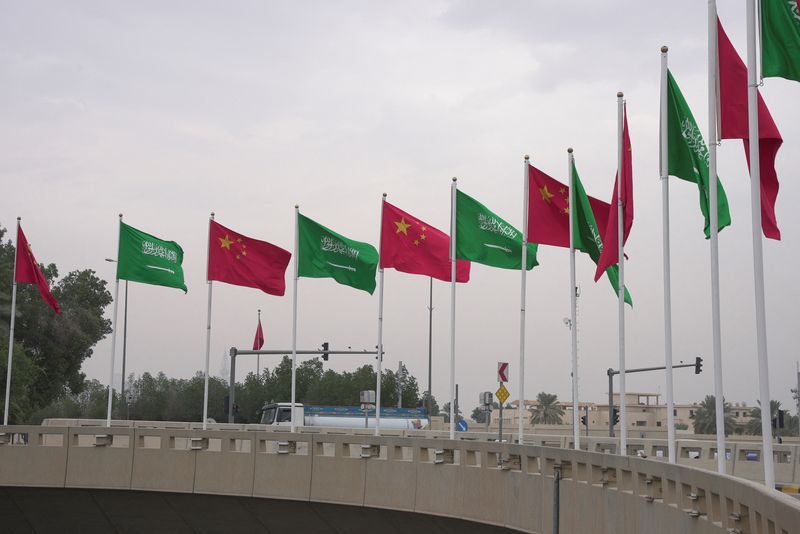Xi arrived in Saudi Arabia
2022.12.07 08:59
[ad_1]

Xi arrived in Saudi Arabia
Budrigannews.com – According to Chinese state media, President Xi Jinping arrived in Saudi Arabia on Wednesday for a visit that Beijing hailed as its biggest diplomatic initiative in the Arab world. Riyadh is expanding its global alliances beyond its long-standing ties with the West.
Saudi ties with Washington are being strained by U.S. criticism of Riyadh’s human rights record and Saudi support for oil output curbs prior to the November midterm elections. The meeting between the global economic powerhouse and the Gulf energy giant comes at this time.
In contrast to the subdued reception that U.S. President Joe Biden received following his criticism of Saudi Arabia’s de facto ruler in July, Crown Prince Mohammed bin Salman is expected to lavishly welcome Xi.
Mao Ning, a spokesperson for the foreign ministry, stated that Xi’s trip will include direct talks with Saudi Arabia, a larger meeting with the six-nation Gulf Arab alliance, and a summit with Arab leaders that will be “an epoch-making milestone in the history of the development of China-Arab relations.”
Mao added that Beijing hopes to make a strong statement about improving “unity and cooperation.”
China presents an opportunity for economic gains without the tensions that have grown to cloud the relationship between the United States and Saudi Arabia. Saudi Arabia is frustrated by what it perceives as Washington’s gradual disengagement from the Middle East and the gradual erosion of its security guarantees.
“Beijing doesn’t trouble its accomplices with requests or political assumptions and avoids meddling in their interior undertakings,” Saudi editorialist Abdulrahman Al-Rashed wrote in the Saudi-claimed Asharq Al-Awsat paper.
In contrast to Washington, Beijing has shown little interest in addressing Saudi political or security concerns in the region. Instead, it maintains strong ties with Iran, Riyadh’s regional rival and another oil supplier to China.
Developing Chinese impact in the Center East has frightened the US, for which the Asian monster is a financial adversary.
The Saudi state news agency SPA reported that the Chinese delegation was expected to sign agreements with other Arab nations and deals worth $30 billion this week with Riyadh.
Gulf oil and gas producers rely heavily on China, the world’s largest energy consumer, as a major trading partner. Saudi Aramco, a state-owned company, is the nation’s primary oil supplier (TADAWUL:). has supply agreements with half a dozen Chinese refiners annually.
Bilateral ties have grown as a result of the Gulf’s infrastructure and technology push, which is part of diversification plans that have become more important as the world moves away from fossil fuels. Energy interests continue to be the foundation of economic ties.
Despite U.S. reservations regarding their ties with Russia and China, Saudi Arabia and its Gulf allies have stated that they will continue to expand partnerships to serve economic and security interests.
Saudi Arabia’s main defense supplier, the United States, has expressed security concerns regarding the growing Chinese involvement in sensitive infrastructure projects in the Gulf. The United States has been Saudi Arabia’s main security guarantor for decades.








